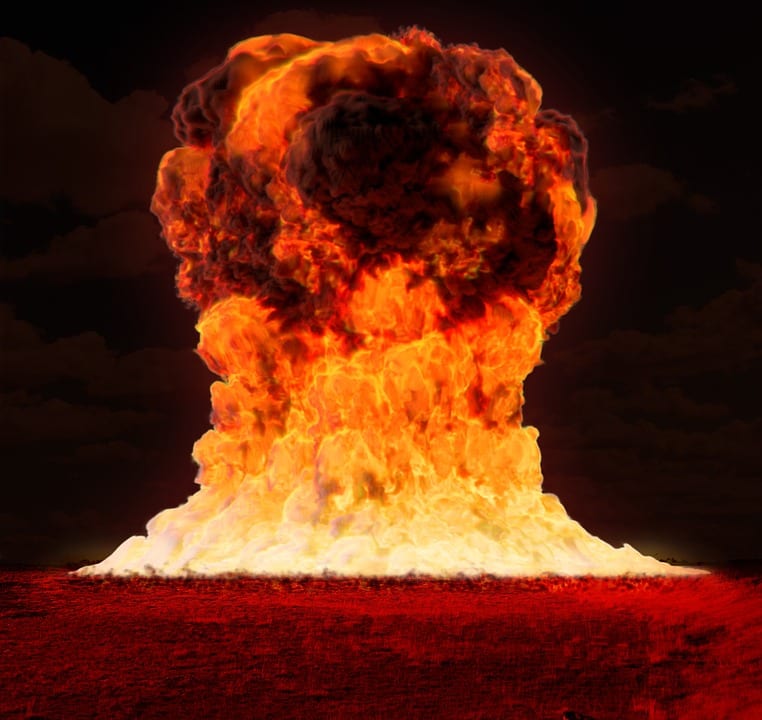Trending Now
Yes, you read that correctly. Back in the 1950s, during the heyday of atomic energy, the United States government legitimately looked into the possibility of nuking Alaska.
The plot was recently uncovered by Atlas Obscura, and the details are WILD. The Atomic Energy Commission (AEC, later known as the Dept. of Energy) developed Project Plowshare sometime in the late 1950s, with the goal of repurposing nuclear weapons as tools to be used for large geoengineering/terraforming operation.

Photo Credit: Pixabay
Basically, the AEC argued that nuclear weapons would usher in a new age of land development, just as the invention of dynamite did decades earlier. Nukes would be used to blast through mountainsides or widen canals, changing the landscape almost instantly with minimal labor costs. There was also the potential for use in accessing natural resources like oil.
In 1958, the AEC had a proposal for an actual undertaking as a proof of concept – Project Chariot, which would detonate a 1-megaton hydrogen bomb near Cape Thompson, Alaska. An additional series of smaller explosions would create a crater nearly 1000 feet wide and 110 feet deep, which could be utilized as a deepwater harbor for mineral mining and commercial fishing. To hear the government at the time tell it, it was an absolute win for the people of Alaska with no drawbacks since the latest weapons had such low fallout…
… Except they didn’t. Local residents were rightfully skeptical, and weren’t looking forward to having to live with the radioactive consequences of this harebrained plan. They argued that earlier test blasts had shown the presence of significant radioactive fallout, and a 1954 blast in Bikini Atoll had a nuclear fallout of 7,000 square miles across the Pacific Ocean! As a result, nobody in Cape Thompson was willing to bet their life on the fact that the U.S. government had actually developed a truly “clean” nuke.
Eventually, everyone involved finally came to their senses and plans for Project Chariot were (thankfully) scrapped in the 1970s. Can you even imagine how catastrophically bad the consequences might have been if they hadn’t?






